When it comes to fundraising, everybody’s got questions.
What’s the best time for an annual appeal?
Is there a best time to launch our monthly giving program?
How do we get started in email marketing?
How do we grow a list of donors and potential donors from scratch?
And on and on …
But when a Twitter follower recently wrote me the following, I was in a bit of a dilemma:
My organization is a mid-sized theater company. Situation is, the General Manager’s got Stage 1 breast cancer, probably going to do double mastectomy because of her family history, and wants to announce it to our top donors (about 100 people, with whom she has quite a personal relationship). The whole thing has blown up right in the middle of prep for our normal major September fund appeal. (Our calendar is off because our season runs June through December rather than Sept thru June; we do the subscription campaign rather than a typical fund appeal for our end-of-year).
So we can’t not do the fund appeal, and the dilemma is, what looks less self-serving: fund appeal first, then this letter about this illness, or illness first and then the fund appeal. Or do we just skip the fund appeal for the fall, and then add a push with the subscription campaign. Appeal brings in about 20-30% of this group’s gifts for the year (average gift in this group is around $1K), so it’s a little bit of a cash-flow hit if we delay it.
Maybe this will finally convince her to let me move all of these gifts to an on-going monthly program!
 My immediate thought was to go ahead with the annual appeal as planned. I believe in having a strong development schedule – and sticking to it. But as to the issue of the General Manager’s illness and how to handle it with donors … well that was another story.
My immediate thought was to go ahead with the annual appeal as planned. I believe in having a strong development schedule – and sticking to it. But as to the issue of the General Manager’s illness and how to handle it with donors … well that was another story.
So I turned to a cadre of experts for the solution and, as you will see, well, the answer “depends.” Read on:
From Tom Ahern:
Honestly, if the goal is to appear LESS self-serving, then send the appeal first and the note about the illness after. I would not delay the appeal; the personal misfortune (and I am HUGELY sympathetic, despite what might sound like the coldness of my opinion) of the general manager has NOTHING to do with the financial business of the theater company and should not interrupt cash flow. I’m honestly a bit surprised that a personal health issue somehow got tangled into a business issue.
From Mal Warwick:
My bottom line is, don’t ever skip a planned fundraising appeal. The only question then becomes one of sequencing.
Depending on how the messages are crafted, this could go either way. But I think it would be more honest – even if it does appear self-serving – to notify supporters first about her illness. It’s essential, though, that this message be as upbeat as possible; if it gives the impression that the company is going to be leaderless for a long time, that could be disastrous. The appeal itself should go out at least two weeks later. October might be better than September, anyway.
Robert Olic (marketing consultant and coach)
– what does the cancer have to do with their campaign? Stay on schedule
– is there a specific purpose to reaching out to those close 100 people? She stepping down?
– 20-30% from appeal, where does the rest come from?
– Can the illness be used to boost the appeal (I’m so committed that after my double operation I plan on continuing my service but I don’t want my absence to hurt the company so I’m hoping you’ll help us make this the best appeal drive ever! blah blah blah)
From John Haydon (JohnHaydon.com)
Why can’t they do the appeal with an update about their GM in the last paragraph.
“Because we value our theatre company and we value community that you belong to, we also wanted to share some news about our General Manager….”
From Rebecca Leaman (Wild Apricot)
The breast cancer announcement wouldn’t be about the mission of the organization (unless they’re doing a production to raise funds for research, or some similar close tie-in) but about the GM’s personal relationship with the donors. Rather than potentially jeopardizing the appeal and important donor relationships – no one likes a whiff of emotional blackmail – the GM might write a quick personal note, preferably handwritten, to those donors with whom her relationship is such that they would appreciate being kept in the know on her health news. And it should be framed as a personal note, not in relation to the theatre company. The ease with which the GM finds it possible/appropriate to find the words to write to each donor would be a good indication of whether they are, in fact, someone who should get the note.
Another question I’d look at is, if they went with an announcement *from* the organization about this poor woman’s situation, what precedent might it set? What rank would a theater employee need to have, and how severe an illness or other difficult personal situation, before it would warrant an official announcement?
That said, the GM is often the heart and soul of such an organization – I know that’s the case with our local theatre company – and they may very well want to make some sort of public acknowledgment of her breast cancer. Consider alternatives to a illness announcement letter to donors – what about organizing a show of local women artists in the theatre lobby, with a donation jar available for those who’d like to give to breast cancer research, in a spirit of support for the GM?
I think the key is for the GM to be clear about what she wants to accomplish (for herself, for the organization) by making an announcement – and for the board to get clear about what organization needs (for its fundraising program and its community of supporters, but also for its relationship with the GM) – and get creative about finding a place where those needs can meet most happily.
From Jay Frost (Consultant)
I was intrigued by this question because of our my family’s own breast cancer experience just last year.
I believe that this decision should be led by the General Manager. If she believes it’s time to tell the board, staff and key supporters, then she should do so, hopefully in person with some of those groups. Development should work around her schedule. The General Manager’s statement that life will go on for both her and the theater and that the theater needs their support especially in times like these should further cement their commitment to the organization.
From Joanne Fritz (about.com nonprofit)
What a sad situation…I hope the manager does well. I would not change anything about the campaign. Send the appeal. Then follow up in a couple of weeks with a letter from her explaining her situation. Keep the two communications separate…no mention of the other in either one….and I think donors will see them as separate. I don’t think it will look self-serving at all. Hope this helps….
From Sandy Rees (consultant)
Hmmm. I think I’d try to combine them. Go ahead and prepare an appeal (I’m assuming this is a letter) and add a note from the ED on a smaller piece of paper so it stands out. Let her explain about her illness and reassure donors that the Theatre will continue to operate.
I’d follow up this letter with a personal phone call from the Development person to answer any questions the donor may have. 100 donors might seem like a lot of phone calls to make, but it will be time well spent.
So, while technically, I think that we’re all agreed that the current appeal should continue as scheduled, there are other issues at play here. As development professionals, I think that we’ve all come across instances of donors who are truly committed to a single often-times charismatic individual – rather than the mission of the organization. The individual goes and the dollars go with him/her. And Hildy Gottlieb, as always, went one step further with her response and gives us valuable perspective in addressing those situations and developing more meaningful communication with our donors:
Hildy Gottlieb, Creating the Future
The following is not an answer, but a path to the answer. First, some observations.
The way this sector’s work is done has become more and more task focused, allowing us to easily lose sight of what is important. Your subscriber is concerned about the September appeal. That appeal is part of a larger plan for several appeals, which is one part of a comprehensive fund development plan. That plan is one part of the various plans related to the infrastructure that allows the theater company to continue to exist. Other parts of the plan, which may or may not directly relate to the September appeal, but probably do apply to the top donors, may include sponsorship of a particular play throughout the season, all of which allow the theater to be an energetic, creative, joyful, vibrant place to be.
The theater is part of a bigger ecosystem, though – of other theater groups in the community, and then other arts groups overall – all of which, as one big arts ecosystem, are part of an even larger ecosystem that includes businesses and government offices and individuals, all of whom dedicate their day-to-day to ensuring there is a rich, vibrant quality of life in the community.
The General Manager is also part of that ecosystem within an ecosystem within an ecosystem, all aimed at community quality of life. Her cancer now adds one more huge piece to that rich tapestry. And so having a healthy, vibrant community means even more than just the arts and the theater and this individual theater – it means health in all it richness. We all know that it takes something besides mere medical treatment to survive and thrive after any major illness. The community’s physical health is therefore directly tied to its creative and emotional and spiritual health.
Which is what the theater is part of.
So that’s my first observation – that the focus on what is important – the “why” of the work the theater is doing – is lost as we stare at a tiny piece of a small piece of the small corner of the puzzle. The September appeal, the fundraising appeals overall, the fundraising plan, the theater’s other plans, its many plays, its patrons and attendees, the rest of the theater community, the arts community, the economic / spiritual / quality of life development community – the community, period.
Now can we put the whole puzzle together without that one tiny piece? No. But if that piece is GREAT and not connected to the rest of the puzzle, why bother? A spare puzzle piece, without the whole puzzle, quickly winds up tossed into the trash.
So now the question of what to do.
1) First, encourage your subscriber to put this into perspective. The following exercise can help:
Have your subscriber ask herself – if she makes the very best choice for this particular appeal (regardless of what that choice is), what would that make possible, and for whom? What would the BEST choice make possible for the theater? For the donors? For the GM? For the community?
And then as she lists those answers, ask again – what would her answers make possible for each of those parties? Then ask it again. And again. I mean it. The answers will grow bigger each time. Ask it till the answer is WOW and YES and THAT’S WHAT WE ALL WANT!
2) Now let’s set aside entirely the question of the September campaign for a moment, to consider this question:
What approaches might build upon the passion each of those parties has for the answers she listed in Question 1? What are the various ways your subscriber (and her GM) can build on the passion and the commitment of all those parties – their individual and collective strengths? What path might she and the GM create that helps to solidify the relationships the GM has built, deepening those personal relationships to the next stage of commitment to the theater (NOT dollar commitment – emotional, creative, spiritual commitment)?
How might they take this opportunity for deep, meaningful connection, and activate something more than the dollars (the least valuable part) that people have to give? How can they use this as an opportunity to activate their passion, their wisdom, their ideas, their energy – all based on their concern for both the GM and the theater?
I have some ideas and I am happy to share them after your subscriber has had a chance to come up with her own ideas as she considers the situation from a larger perspective. When we lift our heads out of the puzzle pieces and see the whole picture – larger than the fundraising, larger than the theater, larger than the donors or the GM – we find that that larger context makes amazing things possible.
And BTW, when we build upon all I have mentioned here, we raise a lot more money. But we also build something WAY stronger than money – commitment, passion, energy, friendship.
So, what do you think? Has your organization experienced a similar situation? How did you handle it?

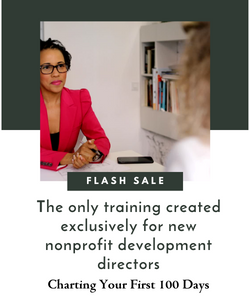
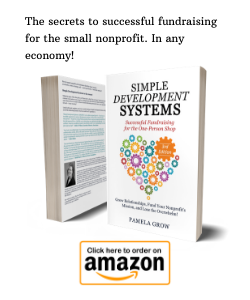
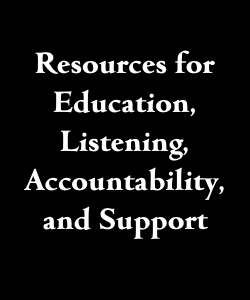
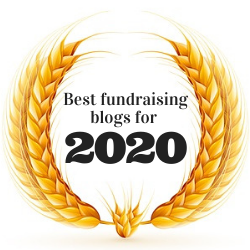


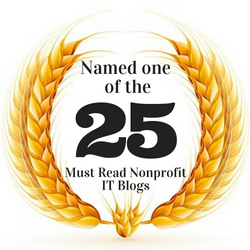




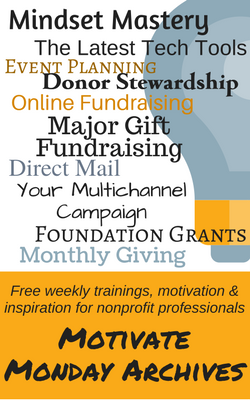




 I can’t wait to meet with you personally.
I can’t wait to meet with you personally.
Comments on this entry are closed.